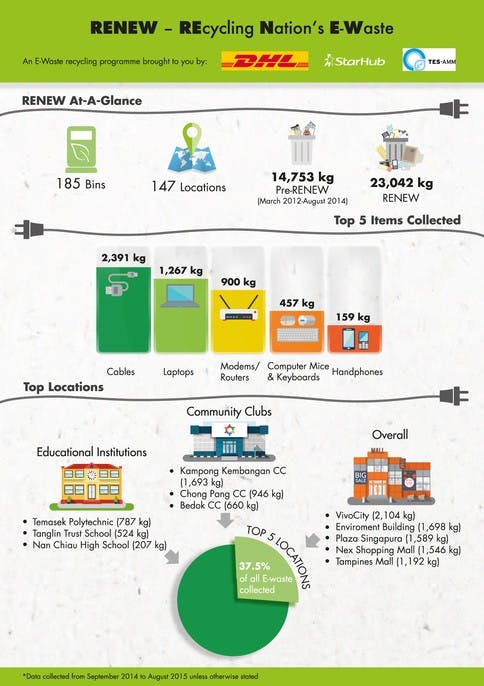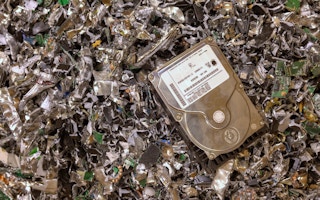Singapore’s largest electronic waste (e-waste) recycling programme, Recycling Nation’s Electronic Waste (Renew), is now a year old. It is turning out to be a hit with tech-savvy residents of the city state, who have recycled more than 23 tonnes of gadgets like laptops, tablets, remote controls, mice, and wires in the past year.
The programme is a voluntary effort by Singapore telecommunications firm Starhub, freight company DHL Express and e-waste management firm TES-AMM. Last year, the firms banded together to roll out 150 collection bins for old electronics across the island, and also handle the transport and recycling.
It builds on an earlier recycling drive by Starhub, which had 30 collection bins placed around the island between March 2012 and September 2014. As part of Renew, Starhub, together with DHL Express and TES-AMM, added more than 150 bins in malls, residences, government offices, community clubs, and schools islandwide, bringing the total to 185 bins.
When Starhub alone ran the programme, it collected 14.8 tonnes of e-waste between March 2012 and September 2014, averaging about half a tonne a year.
Under Renew, this jumped to 23 tonnes of e-waste in just twelve months.
Tan Tong Hai, chief executive officer, Starhub, said in a statement that Renew has been a “runaway success”. The leap in e-waste recycling rates is also a testament to how much can be achieved when companies collaborate, he added.
“Eventually, it is our long-term goal for Renew to be fully funded by the proceeds of the recycled e-waste, making it self-sustaining,” he added.
As Renew enters its second year, the companies plan to improve the bin design and have collection points in more public locations.
Cables were the most common type of e-waste collected, while almost 40 per cent of e-waste was deposited at the following locations: VivoCity, Plaza Singapura, Nex Shopping Mall, Tampines Mall, and the Environment Building, where the Ministry of Environment and Water Resources is located.
Check out the infographic below for a closer look at where Singapore’s e-waste goes, and visit www.starhub.com/renew for a list of bin sites and more information.

A summary of how the Renew programme has fared in its first year. Image: StarHub

















